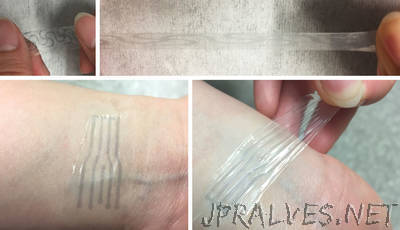
“The brain is soft and electronics are stiff, which can make combining the two challenging, such as when neuroscientists implant electrodes to measure brain activity and perhaps deliver tiny jolts of electricity for pain relief or other purposes. Chemical engineer Zhenan Bao is trying to change that. For more than a decade, her lab has been working to make electronics soft and flexible so that they feel and operate almost like a second skin. Along the way, the team has started to focus on making brittle plastics that can conduct electricity more elastic. Now in Science Advances, Bao’s team describes how they took one such brittle plastic and modified it chemically to make it as bendable as a rubber band, while slightly enhancing its electrical conductivity. The result is a soft, flexible electrode that is compatible with our supple and sensitive nerves.”
